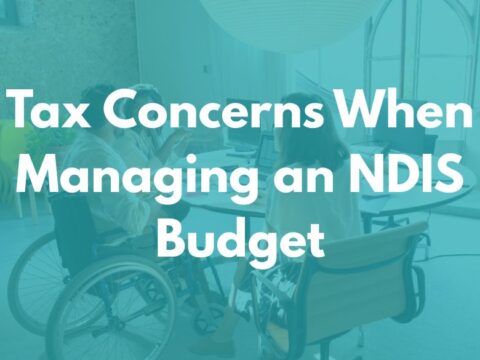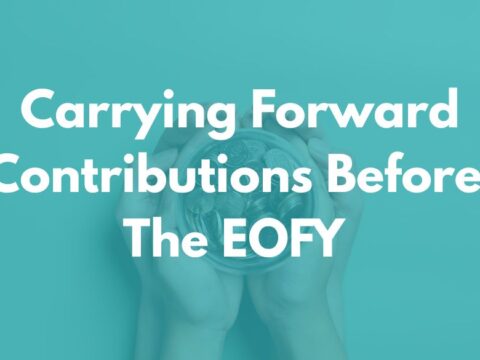A Guide To Land Tax Across The States
Land tax is an annual tax paid to state and territory governments by land owners. If your business owns the property, you will likely need to or have paid land tax on it, depending on the value of the land.
Commencing this year, the land tax threshold in Victoria has been temporarily reduced to $50,000, while the $25,000 threshold for trusts remains unaltered. If the total taxable value of all your Victorian properties (excluding exempt ones) as of 31 December meets or exceeds this threshold, you’ll be issued a land tax assessment.
For some Victorians, this may be the first year they receive a land tax bill.
The amount of land tax you pay depends on the combined unimproved value of your taxable property. There may be different assessments depending on how the land is owned (such as individual, trust, joint owner, etc.).
In most states and territories, you don’t usually have to pay land tax on your main home (permanent residence). In some cases, land owned by some organisation types can be exempt from land tax.
There may also be a foreign investor land tax surcharge if you are not an Australian citizen or resident and own land that is not your primary place of residence.
How Is Land Tax Generally Treated On A Return
Land tax liabilities might be deductible, contingent upon when the obligation arises. The timing of your liability to pay land tax hinges on the applicable state laws.
Your obligation to pay land tax isn’t contingent upon filing a land tax return or the taxing authority issuing an assessment. In many states, the year in which the property is utilised for relevant purposes determines your liability, irrespective of whether an assessment is issued later.
When you receive land tax assessments in arrears, the land tax amount isn’t deductible in the income year when you pay the arrears. Instead, it’s deductible in the respective income years to which the land tax liability pertains.
If a landowner gets a land tax assessment for a year, and later in the same financial year either sells the property or begins using it as their residence, there’s no need to divide the land tax deduction.
The Australian Taxation Office (ATO) considers that the land tax liability was incurred for an income-producing purpose because it was based on the property’s use for income generation.
In the event of a property sale with a land tax adjustment, the seller should declare the recovered amount as rental income.
Land Tax In Other States
- Western Australia – You must pay land tax if you own land valued in excess of $300,000. Liability is assessed on land you do not use as your principal place of residence.
- NSW – Land tax applies to NSW properties that are not your principal place of residence The thresholds for land tax change each year. The general threshold for 2024 is $1,075,000, and the premium threshold is $6,571,000. The value of all land is determined on 1 July each year. If you are liable for land tax, you will receive an annual notice of assessment that will include a list of all NSW land you owned on 31 December of the previous year and how much land tax you must pay.
- ACT – Land tax applies to ACT properties that are not your principal place of residence. This includes both rented properties and those that are vacant, properties owned as a trustee, and rented dwellings on the same property as your home (such as a granny flat). Land tax does not apply to commercial properties.
- Tasmania – Land tax is an annual tax payable by the owner of land that has been classified as General Land as of 1 July each year. Taxable properties include vacant land, commercial properties, rental properties and shacks. Tasmania has a number of exemptions and concessions available depending on the use of the land, including organisation exemptions, home business concessions, special disability trust exemptions and more.
- Queensland – Land tax is an annual state tax that applies to freehold land, whether vacant or built on (residential, commercial & investment properties), and occupied or not. It is a state tax calculated on the freehold land you own in Queensland at midnight on 30 June for the full financial year (July to June). ‘Freehold land’ is not state land or leased from the Queensland Government. You are liable when the total taxable value of your land is $350,000 or more—for absentees, companies and trustees of trusts and superannuation funds- or $600,000 or more—for individuals and trustees of special disability trusts.
- South Australia – The property owner at midnight 30 June is liable to pay the land tax assessed for the forthcoming financial year. Where a property sells after 30 June, the vendor (seller) is still liable for the land tax. Land you hold on trust may be taxed at the trust land tax rates, which includes a surcharge of up to 0.5% on the general land tax rates and a lower threshold of $25,000. Land held on trust will be assessed separately from other land the trustees own. If held under a discretionary, fixed or unit trust it may be subject to the trust surcharge rates of land tax. There are other rules for corporations acting as trustees or beneficiaries of a trust that owns the land. In these instances, you should check with a registered tax agent about your potential tax liability.
- Northern Territory – The Northern Territory does not have land tax.
How Can We Help?
Land tax liability can be a complicated subject, particularly if this is your first year having to report it. As your registered tax agent, we are only able to advise based on federal tax legislation and measures whereas Land Tax is a State Tax.
However, we can provide you with this information to help you further your knowledge and understanding. A legal professional may be better able to assist you specifically with this specific area, such as a solicitor.
IMPORTANT NOTICE
This blog post contains general information only and has been prepared by Allworths without reference to your objectives, financial situation or needs. Allworths cannot guarantee the accuracy, completeness or timeliness of the information contained here. By making this information available to you, we are not providing professional advice or recommendations. Before acting on any of the information contained here, you should seek professional advice.




